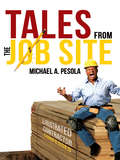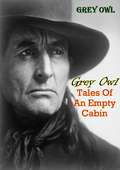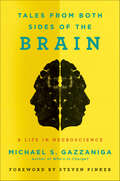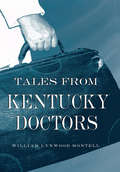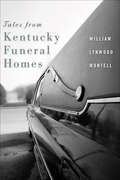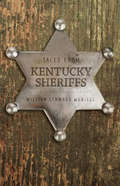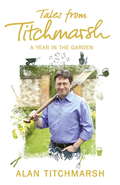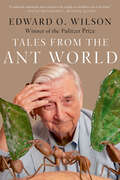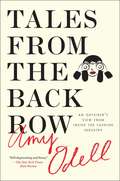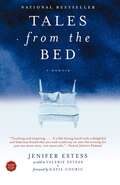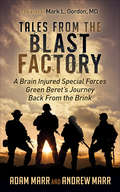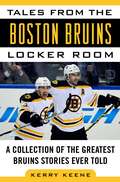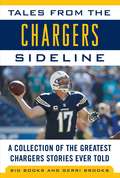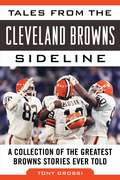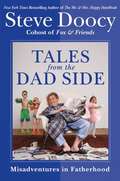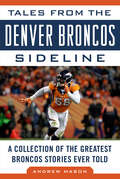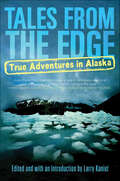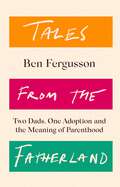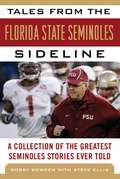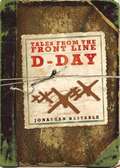- Table View
- List View
Tales From the Job Site
by Michael A. PesolaThese stories are not meant to offend anyone. They are written merely to enlighten the reader to the intricacies of remodel work. Remodeling has long since overtaken new construction in dollars spent; therefore, it stands to reason that many contractors and homeowners out there have a story to tell. These stories can take many forms, from horror, to comedy, to yes, even success stories. My father taught my brothers and me most of what we know. He instilled in us a moral code that helped us to distinguish right from wrong and he taught us how to do things right the first time. God bless him, he is still with us teaching and guiding, albeit more now by example and nuance. Remodeling is like a chess game. Anyone can move, it's finishing that counts. If you're going to do something--anything--do it right. In the end, if these stories entertain you or provoke some thought during your remodel project, or if you can find some humor in the whole process, then I guess the book was worth it.
Tales From the Job Site
by Michael A. PesolaThese stories are not meant to offend anyone. They are written merely to enlighten the reader to the intricacies of remodel work. Remodeling has long since overtaken new construction in dollars spent; therefore, it stands to reason that many contractors and homeowners out there have a story to tell. These stories can take many forms, from horror, to comedy, to yes, even success stories. My father taught my brothers and me most of what we know. He instilled in us a moral code that helped us to distinguish right from wrong and he taught us how to do things right the first time. God bless him, he is still with us teaching and guiding, albeit more now by example and nuance. Remodeling is like a chess game. Anyone can move, it's finishing that counts. If you're going to do something--anything--do it right. In the end, if these stories entertain you or provoke some thought during your remodel project, or if you can find some humor in the whole process, then I guess the book was worth it.
Tales Of An Empty Cabin
by Grey OwlOriginally published in 1936, this classic collection of Canadian yarns harkens to a simpler time, a time when we were closer to the natural world around us. It is a celebration of the pure delight of storytelling, and of the bounty of the land.Grey Owl was both a hearty outdoorsman and a skilled raconteur, and his stories of life in the bush, so beloved by readers then and now, are the perfect companion for a cold winter night or a lazy summer afternoon. In Tales of an Empty Cabin, he offers an eclectic sampling of campfire stories--some are tall tales, while some are drawn directly from the author's own day-to-day life. All are characterized by Grey Owl's unique wit, charm, and passion of nature.
Tales for Hard Times: A Story about Charles Dickens
by David R. CollinsFollows the life and works of the popular nineteenth-century English author.
Tales from Both Sides of the Brain: A Life in Neuroscience
by Michael S. GazzanigaMichael S. Gazzaniga, one of the most important neuroscientists of the twentieth century, gives us an exciting behind-the-scenes look at his seminal work on that unlikely couple, the right and left brain. Foreword by Steven Pinker.In the mid-twentieth century, Michael S. Gazzaniga, “the father of cognitive neuroscience,” was part of a team of pioneering neuroscientists who developed the now foundational split-brain brain theory: the notion that the right and left hemispheres of the brain can act independently from one another and have different strengths.In Tales from Both Sides of the Brain, Gazzaniga tells the impassioned story of his life in science and his decades-long journey to understand how the separate spheres of our brains communicate and miscommunicate with their separate agendas. By turns humorous and moving, Tales from Both Sides of the Brain interweaves Gazzaniga’s scientific achievements with his reflections on the challenges and thrills of working as a scientist. In his engaging and accessible style, he paints a vivid portrait not only of his discovery of split-brain theory, but also of his comrades in arms—the many patients, friends, and family who have accompanied him on this wild ride of intellectual discovery.
Tales from Kentucky Doctors
by William Lynwood Montell“The book lets us see the human side of physicians—the humorous, the heartwarming—the tradition of health care in Kentucky.” —The Harrodsburg HeraldFrom the laughable to the laudable, Tales from Kentucky Doctors present illuminating portraits of doctors and patients, drawing stories from physicians with lifetimes of experience serving Kentucky families. Doctors recall the successes and failures that shaped their early careers. For Dr. Baretta R. Casey of Hazard, becoming a doctor was a difficult journey. Already married and with a child, Casey enrolled in college at age thirty, later completed medical school, and began a successful career as a family practitioner in the 1990s. Though patient visitations and doctors’ prescriptions are recorded on account ledgers, personal relationships and memories are not part of medical records. The section “Personal Practice” gives a glimpse of the intimate connection that doctors form with their communities. For many towns, family physicians were heroes. Dr. James S. Brashear relates the challenges of practicing in Central City, a coal mining town, recalling an incident in which he saved the lives of two miners. Handed down to Montell in the oral tradition, the tales presented in this collection represent every part of the state. Personal experiences, humorous anecdotes, and local legends make it a fascinating panorama of Kentucky physicians and of the communities they served.“Abounds with interesting and amusing anecdotes about life in rural Kentucky. For those of us who grew up during these times, it brings back fond memories of good times and bad.” —Bowling Green Daily News
Tales from Kentucky Funeral Homes
by William Lynwood Montell“A unique firsthand record of this history and culture of death in Kentucky relayed nearly word-for-word to preserve the language, style and emotion.” —Hardin Company Historical SocietyIn Tales from Kentucky Funeral Homes, William Lynwood Montell has collected stories and reminiscences from funeral home directors and embalmers across the state. These accounts provide a record of the business of death as it has been practiced in Kentucky over the past fifty years. The collection ranges from tales of old-time burial practices, to stories about funeral customs unique to the African American community, to tales of premonitions, mistakes, and even humorous occurrences. Other stories involve such unusual aspects of the business as snake-handling funerals, mistaken identities, and in-home embalming. Taken together, these firsthand narratives preserve an important aspect of Kentucky social life not likely to be collected elsewhere. Most of these funeral home stories involve the recent history of Kentucky funeral practices, but some descriptive accounts go back to the era when funeral directors used horse-drawn wagons to reach secluded areas. These accounts, including stories about fainting relatives, long-winded preachers, and pallbearers falling into graves, provide significant insights into the pivotal role morticians have played in local life and culture over the years.“A fascinating read . . . Some of the stories are thoughtful explanations of past funeral customs and ruminations on the needs of grieving, but many are also funny.” —Lexington-Herald Leader“Yes, they have humorous stories to tell, but they also have poignant tales that will move you.” —Bowling Green Daily News“[Montell’s] edited anecdotes preserve many of those traditions for readers interested in commonwealth customs related to ‘passing on.’” —Courier-Journal
Tales from Kentucky Sheriffs
by William Lynwood Montell“Wildly funny and deeply tragic . . . these tales chronicle each sheriff’s journey from youth to election to office and, occasionally, into retirement.” —Wayne County OutlookFollowing the success of his collections of stories from funeral directors, schoolteachers, doctors, and lawyers, folklorist William Lynwood Montell presents a new volume of tales from Kentucky sheriffs. Montell collected stories from all areas of the state to represent the diversity of social and economic backgrounds in the various communities the officers serve.Tales from Kentucky Sheriffs covers elections, criminal behavior, and sheriff’s mistakes in a lighthearted and often humorous manner. The book includes accounts of a drunk driver who thought he was in a different state, a sheriff running a sting operation with the US Marshals, and a woman reporting a tomato thief in her garden. Other accounts involve procedural errors with serious consequences, such as the tale of a sheriff who mistakenly informs a man that his son has committed suicide. Together, these firsthand narratives preserve important aspects of Kentucky’s history not likely to be recorded elsewhere.“The stories Montell collected fill up nearly 300 pages and range from humorous mishaps during incidents and interesting criminal behavior to the more somber topic of death in the line of duty.” —Central Kentucky News-Journal“The numerous experiences shared by the people interviewed cover several decades and provide a very enlightening look into the world of Kentucky county-level law enforcement.” —Kentucky Ancestors“[Montell] has once again mined an important element of the state’s culture with utter transparency, and has—once again—done the state proud.” —Kentucky Monthly
Tales from Titchmarsh
by Alan TitchmarshBritain's favourite gardener Alan Titchmarsh has also been the most popular contributor to Gardeners' World magazine for the last twenty years.This collection of his very best columns, demonstrates just why he is regularly voted the readers' favourite. His brilliant writings are, in turn, practical - just how far back should we prune our roses? - opinionated - I always rail at people who go out on a Sunday afternoon to tidy their gardens. I mean, a garden is not a sock drawer - cheeky - I have a theory that gardeners grow to look like their soil and wistful - You've got to be a bit of a dreamer to get the most out of your garden.So lay down your trowel, take off your wellies, sit back and enjoy a bit of quintessential Titchmarsh.
Tales from a Dog Catcher
by Lisa Duffy-KorpicsThe Cold War had recently drawn to a close, and Lisa Duffy-Korpics's career as a dogcatcher would soon be history, too, but for very different reasons--and, indeed, with infinitely more pleasant memories. In Tales from a Dog Catcher, she brings together these experiences in a magical book that is funny, touching, and heartrending by turns. Set in a small, Hudson River town north of New York City, this book comprises twenty-two real-life stories about people and their experiences with animals, stories that both entertain and charm, and feature all creatures great and small--from plenty of dogs and cats and "peeping Tom" raccoons, to a duck and a turkey and an (imagined) mountain lion. Animal lovers of all kinds can read how: * A decades-long feud between two longtime enemies who use each other's dogs to hurt each other culminates in a dramatic courtroom battle where they unwittingly end up helping each other. * A call on an elderly woman to surrender twenty-three cats provokes a surprising revelation. * A language and culture barrier yields a situation where a woman ends up watering her cats like plants. All ends well, save for some damp kittens, but the laughter continues for miles. * The police chief forces the animal control officer (ACO) into a presentation at the local high school--for students with behavioral problems. After a few awkward moments, the ACO finds herself at ease. Drawn to these engaging teenagers, she realizes that sometimes what you are meant to do in life is not always something that you choose. Sometimes it chooses you. In the tradition of James Herriot's All Creatures Great and Small and John Grogan's Marley & Me, Lisa Duffy-Korpics's Tales from a Dog Catcher is an unforgettable look at the lives of everyday people (and animals) who, whether by accident or design, come into contact with the sad, comical, and often profound world of an animal control officer.
Tales from the Ant World
by Edward O. WilsonEdward O. Wilson recalls his lifetime with ants, from his first boyhood encounters in the woods of Alabama to perilous journeys into the Brazilian rainforest. “Ants are the most warlike of all animals, with colony pitted against colony,” writes E.O. Wilson, one of the world’s most beloved scientists, “their clashes dwarf Waterloo and Gettysburg.” In Tales from the Ant World, two-time Pulitzer Prize-winner Wilson takes us on a myrmecological tour to such far-flung destinations as Mozambique and New Guinea, the Gulf of Mexico’s Dauphin Island and even his parent’s overgrown backyard, thrillingly relating his nine-decade-long scientific obsession with over 15,000 ant species. Animating his scientific observations with illuminating personal stories, Wilson hones in on twenty-five ant species to explain how these genetically superior creatures talk, smell, and taste, and more significantly, how they fight to determine who is dominant. Wryly observing that “males are little more than flying sperm missiles” or that ants send their “little old ladies into battle,” Wilson eloquently relays his brushes with fire, army, and leafcutter ants, as well as more exotic species. Among them are the very rare Matabele, Africa’s fiercest warrior ants, whose female hunters can carry up to fifteen termites in their jaw (and, as Wilson reports from personal experience, have an incredibly painful stinger); Costa Rica’s Basiceros, the slowest of all ants; and New Caledonia’s Bull Ants, the most endangered of them all, which Wilson discovered in 2011 after over twenty years of presumed extinction. Richly illustrated throughout with depictions of ant species by Kristen Orr, as well as photos from Wilsons’ expeditions throughout the world, Tales from the Ant World is a fascinating, if not occasionally hair-raising, personal account by one of our greatest scientists and a necessary volume for any lover of the natural world.
Tales from the Back Row: An Outsider's View from Inside the Fashion Industry
by Amy OdellA keenly observed collection of personal essays about what it’s like to be a young woman working in the fashion industry, Amy Odell’s Tales from the Back Row offers “a backstage pass to the intimidating, backbiting industry” (US Weekly).In the “funny, insightful” (Harper’s Bazaar) Tales from the Back Row, Cosmopolitan.com editor Amy Odell takes readers behind the stage of New York’s hottest fashion shows to meet the world’s most influential models, designers, celebrities, editors, and photographers. But first, she has to push her way through the crowds outside and weave her way through the packed venue, from the very back row to the front. And as Amy climbs the ladder (with tips about how you can, too), she introduces an industry powered by larger-than-life characters: she meets the intimidating Anna Wintour and the surprisingly gracious Rachel Zoe, not to mention the hilarious Chelsea Handler, and more. As she describes the allure of Alexander Wang’s ripped tights and Marchesa’s Oscar-worthy dresses, Amy layers in something else: how the fashion industry is an exaggerated mirror of human fallibility—reflecting our desperate desire to belong, to make a mark. In her “light-hearted, cocktail-hour confession from someone who is…sober enough to recognize insanity for what it is” (The Washington Post), Amy is the first to admit that as much as she is embarrassed by the thrill she gets when she receives an invitation to an exclusive after-party, she can’t help but RSVP “yes.” Welcome to the weird and wonderful world of high fashion: “Whether you’re interested in pursuing a career in publishing, public relations, or design, or you’re just fascinated with what really goes on behind-the-scenes without the usual sugarcoating, we’d say this is required reading” (Fashionista.com).
Tales from the Bed: On Living, Dying, and Having It All
by Jenifer EstessJenifer Estess is a woman on the verge: She's about to launch her own company; she's looking buff and dating vigorously; she's driving in the fast lane -- with the top down. At the age of thirty-five, Jenifer dreams of falling in love and starting a family. Then she notices muscle twitches in her legs. Walking down a city block feels exhausting. At first, doctors write off Jenifer's symptoms to stress, but she is quickly diagnosed with ALS, a fatal brain disease that is absolutely untreatable. Max out your credit cards and see Paris, suggests one doctor. Instead of preparing to die, Jenifer gets busy. She dreams deeper, works harder, and loves endlessly. For Jenifer, being fatally ill is not about letting go. It's about holding on and reaching -- for family, friends, goals. Jenifer's girlhood pact with her sisters Valerie and Meredith -- nothing will ever break us apart -- guides them as Jenifer faces down one of the most devastating illnesses known to humankind. That same enduring pact inspires the creation of Project A. L. S. , a movement started by the sisters that changes the way science and medicine approach research for ALS and the related diseases Parkinson's and Alzheimer's, and which has already raised more than $18 million. Will Project A. L. S. help scientists discover medicine in time for her?Jenifer answers these questions and others in this beautifully written and wholly inspiring memoir that celebrates a life fuelled by memory. Tales from the Bed forces us to reconsider society's notion of "having it all," and illustrates, more than anything, the importance of endurance, hope, and, most of all, love.
Tales from the Blast Factory: A Brain Injured Special Forces Green Beret's Journey Back From the Brink
by Andrew Marr Adam MarrA veteran tells his story of suffering from traumatic brain injury—and finally finding relief. Former Green Beret Andrew Marr served multiple tours of duty in Afghanistan—incurring dozens of traumatic brain injuries. It just about destroyed him and his family, and almost cost him his life. After the military medical establishment repeatedly failed him, Marr called upon the initiative and determination that had served him as a warrior—and eventually triumphed with the help of an innovative doctor. As thousands of veterans, athletes, accident victims, and other TBI sufferers wallow in the wake of inadequate treatment—and in many tragic cases, turn to suicide—this book offers new hope and explains the science behind this very specific kind of healing, and why conventional protocols fail. &“Takes us from the battlefields of Afghanistan to Andrew&’s unrelenting battle to be whole again . . . a raw reminder that even in a brain injured state, the mind can clearly triumph.&” —Joe Rogan
Tales from the Boston Bruins Locker Room: A Collection of the Greatest Bruins Stories Ever Told (Tales From The Team Ser.)
by Kerry KeeneIn this fascinating collection of Bruins tales, Kerry Keene brings readers behind the scenes and captures the stories that have defined the franchise throughout its storied history. From the team’s inception in 1924 to their 2011 championship run and beyond, Tales from the Boston Bruins Locker Room has it all. This treasure trove of Bruins lore brings Boston’s best hockey players to life with stories about Bobby Orr, Ray Bourque, Phil Esposito, Cam Neely, Tim Thomas, Patrice Bergeron, and other Bruins legends. Learn what Bruins jersey number was retired twice, who started the tradition of painting stitches on hockey masks, and how the 1977 Bruins team inspired author George Plimpton to write the book Open Net, and relive the greatest moments of the 2011 Stanley Cup Finals.
Tales from the Chargers Sideline: A Collection of the Greatest Chargers Stories Ever Told (Tales From The Team Ser.)
by Sid Brooks Gerri BrooksDuring his 27-year tenure with the Chargers, beloved equipment manager Sid Brooks kept more than 5,000 football players from appearing naked before their cheering fans. The first African American to hold the job of equipment manager in the NFL, Brooks was tasked with seeing that each player left the locker room in uniform. But the means to that end was far more complicated—and outrageous—than one would believe.In Tales from the Chargers Locker Room, Sid recounts stories unique to a life spent working behind the scenes in the Chargers locker room. He features stories about Chargers greats like Dan Fouts, Charlie Joiner, Kellen Winslow, Louie Kelcher, John Jefferson, Rodney Harrison, and Junior Seau. With an eye for detail, he recounts tales of spies sent out to capture the opposing team’s playbooks; the night the lights went out on Don Shula; wild cab rides; the zany pregame rituals and idiosyncrasies; rivalries born not on the playing field, but at the dominoes table; and plenty of pranks and good-natured ribbing. Brimming with hilarity, insight, and fascinating behind-the-scenes stories, Tales from the Chargers Locker Room is a must-read for every Chargers devotee.
Tales from the Chicago Blackhawks Locker Room: A Collection of the Greatest Blackhawks Stories Ever Told (Tales From The Team Ser.)
by Bruce Wolf Harvey WittenbergAs one of the NHL’s original six teams, the Chicago Blackhawks have given their fans millions of heart-stopping memories, thousands of unforgettable stories, and now six Stanley Cup Championships with their recent 2015 win.Fans of this indomitable team can capture the excitement from the 2014-2015 season and relive all the memories of the beloved franchise in this newly updated edition of Tales from the Chicago Blackhawks Locker Room. From the "Curse of Muldoon” to three championships in five years, the Hawks have a rich history. With all the charm and wit of a sportscaster who has been covering the Blackhawks for over sixty years, Harvey Wittenberg shares the greatest Hawks stories, including their 2010, 2012, and 2015 Stanley Cup title runs. Straight from the source-players, coaches, and managers-Wittenberg offers an informative and entertaining look at the Chicago Blackhawks. Tales from the Chicago Blackhawks Locker Room is a riveting treasure trove of tales sure to delight any sports fan.Skyhorse Publishing, as well as our Sports Publishing imprint, are proud to publish a broad range of books for readers interested in sports-books about baseball, pro football, college football, pro and college basketball, hockey, or soccer, we have a book about your sport or your team.Whether you are a New York Yankees fan or hail from Red Sox nation; whether you are a die-hard Green Bay Packers or Dallas Cowboys fan; whether you root for the Kentucky Wildcats, Louisville Cardinals, UCLA Bruins, or Kansas Jayhawks; whether you route for the Boston Bruins, Toronto Maple Leafs, Montreal Canadiens, or Los Angeles Kings; we have a book for you. While not every title we publish becomes a New York Times bestseller or a national bestseller, we are committed to publishing books on subjects that are sometimes overlooked by other publishers and to authors whose work might not otherwise find a home.
Tales from the Cleveland Browns Sideline: A Collection of the Greatest Browns Stories Ever Told (Tales From The Team Ser.)
by Tony GrossiOhio coaching legend Paul Brown said he wanted to create "the New York Yankees of pro football" when he assembled the Cleveland Browns from scratch in 1946. Despite his ambition, not even the future Hall of Fame coach could have foreseen ten league championship appearances and seven titles in the team's first ten years. Since their first game, the Cleveland Browns have come to symbolize power, excellence, and gridiron dominance. Now fans of one of the NFL’s most storied teams will recapture all the excitement and glory of Browns football in this newly revised edition of Tales from the Cleveland Browns Sideline.Cleveland native and veteran football writer Tony Grossi recalls the personalities that sowed one of the NFL's proudest traditions and the characters who have continued to grow it. Fans will discover the unlikely origin of the Marion Motley trap play, the scout's inside story behind "the mad dog in the meat market,” the insult that launched Brian Sipe's rise from a thirteenth-round draft pick to the league's Most Valuable Player, and so much more. From Jim Brown to Bernie Kosar and up through the modern era, this book captures the colorful characters who wore the plain white uniforms and blank orange helmets like never before.
Tales from the Dad Side: Misadventures in Fatherhood (Playaway Adult Nonfiction Ser.)
by Steve DoocyWhat you're holding in your hands is a very funny and sometimes poignant look at fathers. It's filled with stories of what it's been like as a dad and a son, from a child's first day of kindergarten to the awkward sex talk, right up to the day the always practical dad tries to pay for college with bonus miles. While bookstores are filled with tales of mothers, their children, and families, there are so few from the dad's side. Now, as a public service, I'm doing my part to right this wrong.
Tales from the Denver Broncos Sideline: A Collection of the Greatest Broncos Stories Ever Told (Tales From The Team Ser.)
by Andrew MasonThis updated edition in the best-selling “Tales from the Sidelines” series captures the memorable moments, colorful characters, outstanding players, and championship seasons that are part of the Broncos’ storied history. Beginning with the franchise’s origins as a charter member of the American Football League in 1960, Andrew Mason takes the reader on a journey that includes a decade of Bronco futility, the AFL-NFL merger, and the team’s first-ever playoff appearance in 1977, when they went all the way to the Super Bowl. Since then, the Denver Broncos have become one of the NFL’s most consistent and successful franchises, with just six losing seasons in the last thirty-seven years.Mason mines the team’s rich history for stories that are revealing, moving, and often hilarious. Examples from the first ten years are “the worst uniforms ever,” the arrival of Lou Saban and Floyd Little, and the story of “Marlin the Magician.” The 70s brought John Ralston, the 3-4 Orange Crush defense, the Miracle of ’77, and wild man Lyle Alzado. John Elway took the Broncos through the 80s and 90s, “The Drive,” five Super Bowls, two championships, and “the greatest walk off ever.” Fans are treated to the “ups, downs, and frowns” of Jay Cutler, the second coming of Peyton Manning, two more Super Bowls, one more championship, and the dominance of Von Miller. “Mile High Football” is alive and well in Denver, but it wasn’t always that way. In this newly revised edition of Tales from the Denver Broncos Sideline, Andrew Mason gives readers the stories of the low points that tested Broncos fans’ allegiance, the incredible highs that followed, and everything in between.
Tales from the Edge: True Adventures in Alaska
by Larry KaniutFrom the Klondike to the Bering Sea, from Alaska's bounty that brought fortunes to some to its wilderness that claimed the lives of others, Tales from the Edge explores the myth, beauty, and peril of the arctic landscape. Editor Larry Kaniut brings together some of the world's best outdoor adventure writers to celebrate the land and the people who have measured themselves against it.Tales from the Edge is a celebration of Alaska featuring such notable contributors as Peter Jenkins, Spike Walker, Jay Hammond, Nick Jans, Dana Stabenow, Larry Kaniut, and more. Tales from the Edge will stir the soul and imagination of every armchair adventurer.
Tales from the Fatherland: Two Dads, One Adoption and the Meaning of Parenthood
by Ben FergussonA pause. 'Ah, Herr Fergusson. It's Frau Schwenk.' Our social worker, I now understood. 'Thank you for getting back to me. I'm calling because we have a little boy, four weeks old, who needs a family.'In 2018, after the introduction of marriage equality in Germany, Ben Fergusson and his German husband Tom became one of the first same-sex married couples to adopt in the country. In Tales from the Fatherland Fergusson reflects on his long journey to fatherhood and the social changes that enabled it. He uses his outsider status as both a gay father and a parent adopting in a foreign country to explore the history and sociology of fatherhood and motherhood around the world, queer parenting and adoption and, ultimately, the meaning of family and love.Tales from the Fatherland makes an impassioned case for the value of diversity in family life, arguing that diverse families are good for all families and that misogyny lies at the heart of many of the struggles of straight and queer families alike.
Tales from the Florida State Seminoles Sideline: A Collection of the Greatest Seminoles Stories Ever Told (Tales from the Team)
by Bobby Bowden Steve Ellis Wayne McGahee IIIFor thirty-three years, Bobby Bowden was the heart and soul of Florida State football. Now Seminoles fans of every generation will get to relive the glory and passion of Florida’s winningest coach in this edition of Tales from the Florida State Seminoles Sideline. In this gripping narrative, Bobby Bowden and Steve Ellis bring readers right up to the sideline to experience pivotal moments in Florida’s football history. From Bowden’s first winning season to the national championship victories in 1993 and 1999, into the new millennium and beyond, Tales from the Florida State Seminoles Sideline has it all. Bowden relives the pride and competition he felt as he faced his son in the famous Bowden Bowls, and shares his innermost thoughts as he revolutionized collegiate sports. Without a doubt, this is a must-have for any Seminoles fan.
Tales from the Front Line - D-Day
by Jonathan BastableTales From the Front Line - D Day is a chronicle of the build-up and aftermath of the most decisive battle of World War II, told through the tales of the extraordinary participants who recorded their experiences in letters or diaries, or recounted them after the event. Tales From the Front Line - D-Day commemorates the bravery and skill of generals, frontline soldiers, statesmen and civilians. Jonathan Bastable has skillfully woven disparate tales into a compelling narrative of one of the key events in the twentieth century. You will find that this is the most personal account to date of the day s events.
Tales from the Front Line D-Day
by Jonathan Bastable"Tales From the Front Line: D - Day" is a chronicle of the build-up and aftermath of the most decisive battle of World War II, told through the tales of the participants who recorded their experiences in letters or diaries, or recounted them after the event. Part of a new series featuring fascinating insights into the greatest conflicts in history. Jonathan Bastable has skillfully woven disparate tales from generals and frontline soldiers, statesmen and civilians, into a compelling narrative of one of the key events in the twentieth century.
